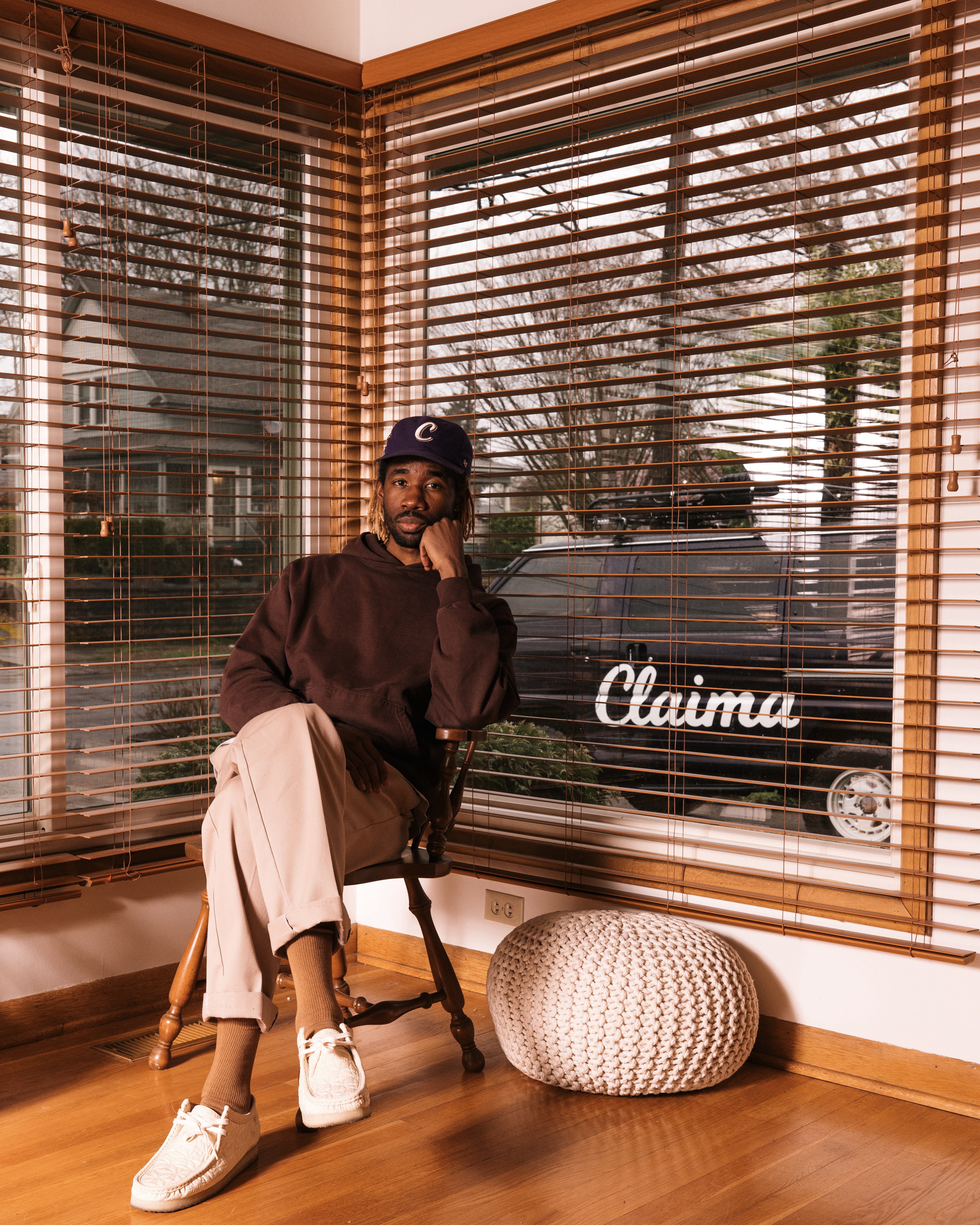
Early in my conversation with podcaster, Instagram personality, ad agency owner, and all-around creative mastermind Bimma Williams, he tells me a story about launching his podcast at the African American Footwear Forum, on August 11, 2019:
“There were 500 or so people in this audience. These are people who are my peers — everyone from new hires to Senior VP leaders. Footwear News is in the building. ESPN is in the building. It is probably the worst scenario to have as your first time doing anything. And this is when you know there’s something bigger than any of us… because I did four interviews that day and my heart was beating out of my chest. And these are probably four of the best interviews that I’ve done in my life.”
Williams, the host of Apple’s #1-rated career podcast, Claima Stories went on to explain that before launching the podcast, he’d hoped to test the waters of interviewing by doing something small in front of “like, 20 people” at the forum. Instead, he was chucked into the open ocean with no life preserver. But as nerve-racking as those interviews were, their quality was a sample of big things to come. Since that day, Williams has transitioned from working for footwear titans like Nike and Adidas to interviewing folks like Tyler the Creator, Dapper Dan, Aleali May, and a wide range of innovators and icons.
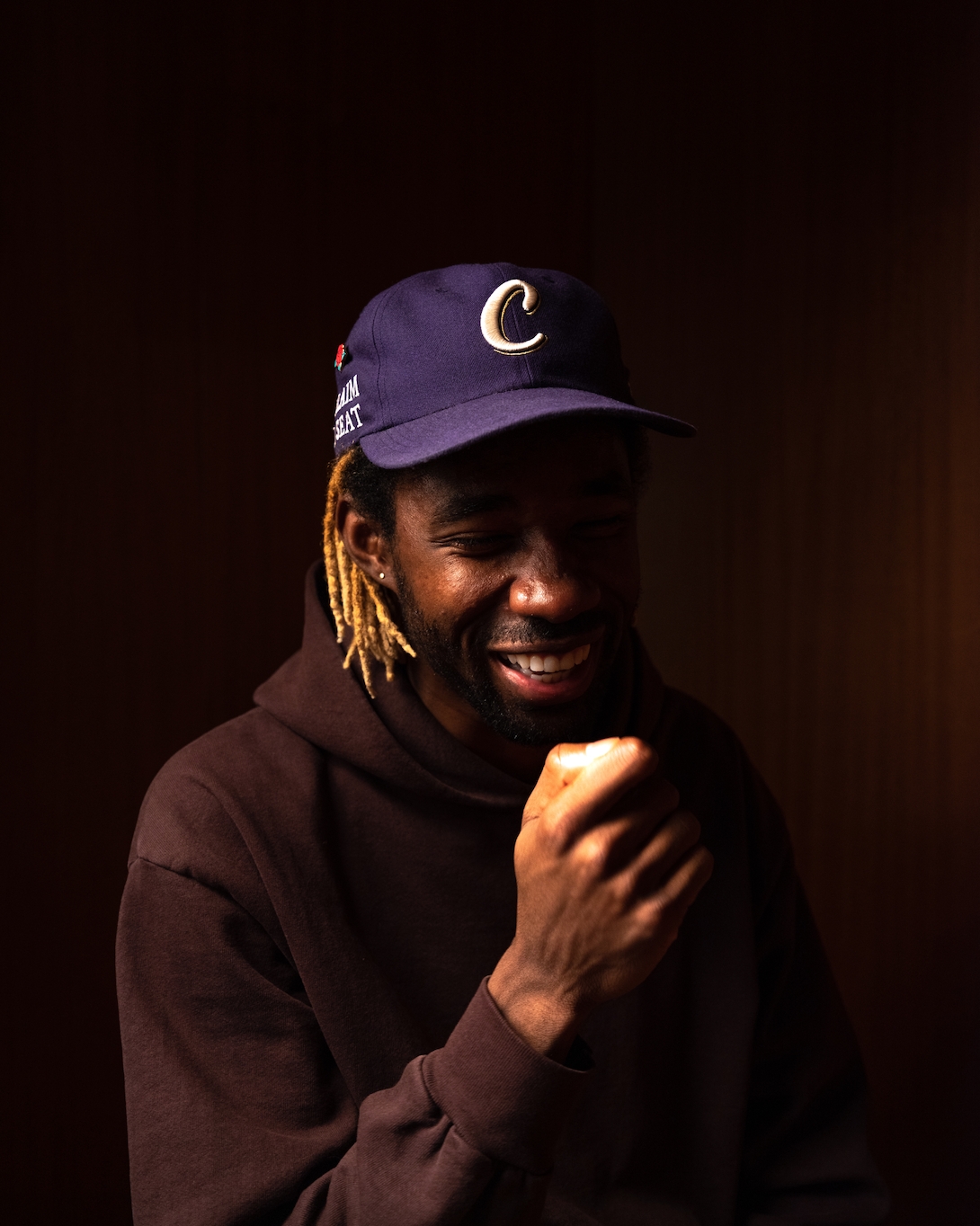
While the idea of “leaving a successful career to do a podcast” is growing increasingly rare (though it is still a plot point in movies), Williams is quite obviously a natural storyteller and comfortable on both sides of the mic. Claima Stories exhibits a certain playfulness on the part of its host that puts guests at ease. On the flip side, Williams has the ferocity of an entrepreneur — so as successful as his guests are, there’s a good possibility that they have something valuable to learn from him, as well. As such, each interview is less about taking wisdom from predominant creatives and more about a natural and open exchange of information.
If you didn’t catch it yet, Claima Stories is short for “claim a” as in “claim a seat at the table.” The mission: tell the stories of successful professionals and creatives of color to inspire the next generation; because, as Williams often mentions, “you can’t be what you can’t see, and you can’t do what you can’t do.“
It’s a dilemma all too common for BIPOC and one Williams faced himself, growing up in Baton Rouge, Louisiana. While he appreciated the creative and entertainment industries, he didn’t have the access or support needed to pursue those sorts of careers. Then, in the fifth grade, he was given a compass of sorts when his father gifted him a pair of Air Jordan Concord 11s. Through the lens of this iconic shoe, he became bound to the storytelling and emotional component of sneakers. The lifestyle aspect gelled seamlessly with his other use of footwear — running. But as natural as it may appear, a runner/sneaker lover making their way to Nike wasn’t an easy path.
Fresh out of college and stuck in a data entry job, Williams knew he had to start sprinting in another direction. He started documenting his journey in the running community via what would become the Claim Your Journey Blog — which gradually developed a following on social media. Unbeknownst to Williams, the blog was later scouted by executives from the Boston-based footwear company, Saucony, who later invited him to lead their Global Social Media Initiative. Originally, Williams describes laughing in disbelief at this offer. In retrospect, he describes it as “The Initial Invite” of the classic hero’s journey.
Check out our full conversation below for more on Williams’ career arc, approach to creativity, and dream documentary.
***
I love the story of how you “claimed” that opportunity with Saucony — it’s a great origin story.
Well, It’s something I try to remember because, as you evolve, you forget sometimes the mindset of when you didn’t have anything. And at that time, I didn’t have anything at all. After I left the data entry job to focus on the Claim Your Journey Blog, I was living check to check — like $2-in-my-bank-account type of check to check. It was easy to leave because I had no emotional connection to it. What was hard was, I didn’t want to disappoint my mom. Being a single black mom, she’s the one who put so much on the line. There’s so much she’s done for me, and I just felt the sense that I couldn’t let her down — which would be becoming anything less than what I was capable of.
What pushed me even further was that my dad had passed away from his battle with colon cancer. I developed this unhealthy mindset that time is unexpected, time is short, and anything that I wanna do, I gotta do it at breakneck speed.
I listened to your conversation with Douglas Williams, and it seemed like you guys were at a similar place where you had someone close pass away, and it kind of pushed you to get stuff going.
I think, in the absence of therapy, I decided to channel every emotion I was feeling with that. Whether it was abandonment, sorrow, grief, regret, anger, you know… I was upset with my dad. He didn’t give me the guidance that I felt I needed, and so instead of dealing with that in a healthy way, I turned it into work, and I put everything into it.
So many people have those kinds of unhealthy voids, and if you look story for story, they usually center around family and childhood. There could have been a moment where it could have been drugs, but instead it was, “I’m gonna make something of myself and I’m gonna sacrifice everything to do that.”
Where do you think that strength and insight came from?
It came from a place of pure imagination based off what I didn’t have. I got tired of seeing this stuff on TV, Youtube, and Complex magazine. I’m seeing all these stories, and I’m not seeing it in my life or around the people I know. And so, I’m like, dog, I can’t be in my thirties and working somewhere that I’m not passionate about.
I’m an only child, so I know how to sit and create a whole world in my head. But the difference this time was that I was gonna make that world real, and it required me to not only turn in to work but also reconstruct the outside world that wasn’t serving me. It was hard. I stepped away from friendships that I had since I was in high school because those folks weren’t serving me in the right way. I was just trying to go on my quest. I was writing on a post-it note, and you know, it was called “Claim It.” I didn’t even know that that was some subconscious work. What was happening was my brain was actively seeking ways for me to realize this dream I wanted.
When I quit, I remember my friend was like, “Don’t quit before you have something lined up!” And I was like, “Nah, I’m out of here.”
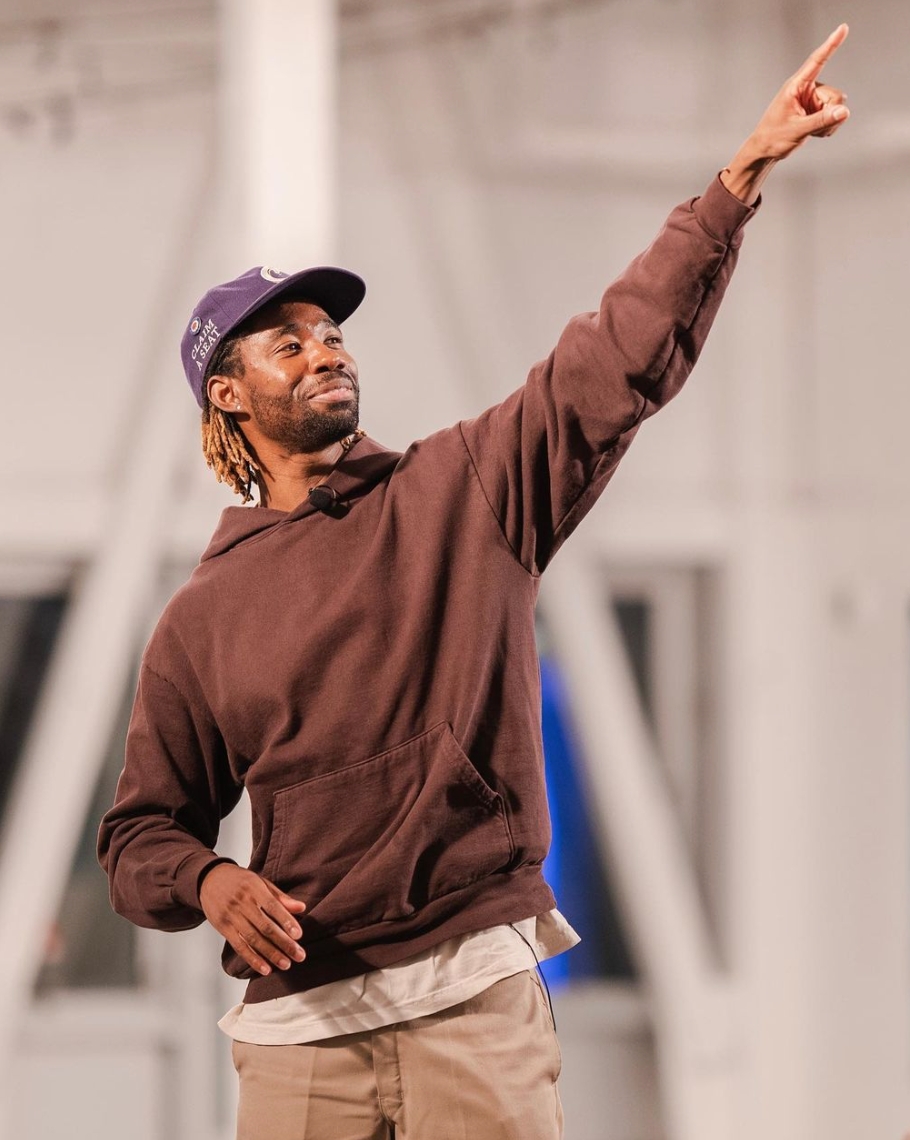
I guess if we’re talking about the prototypical Joseph Campbell Hero’s Journey, there’s Baton Rouge, the old world, and then you make your way into the remarkable world of Saucony, then Adidas, and Nike. What was that like?
[Saucony] felt like the underworld in stranger things. You have to imagine… you got people you could call if things get tough. I never had people I could call. I got no inheritance. There’s nothing. I’m really starting from scratch when I get to Boston and into the industry in general.
I’m feeling several ways: I’m feeling like, “Whoa, I don’t know what this is. I don’t know the language.” At the time, I was the only Black professional in the building. So, I’m there, I’m questioning everything like, “Why am I here?” But what happened was that I doubled down on the breakneck mentality, and I started working around the clock, learning, and networking like crazy. I wasn’t going back to Baton Rouge.
So, over the years, I put up the numbers, and from there took that energy to Adidas and Nike and worked on everything from Supreme to Ambush.
What inspired you to make the first steps toward the podcast?
Well, what I learned at Nike and Adidas was, “Wow, this is dope, but it’s not really… I guess, solving what I thought it was gonna solve for me internally.” What I mean by that was, I hadn’t done the work to really understand what my purpose was and I didn’t know what that was in each of these environments. You know, I felt anxious because I couldn’t really articulate to you why I was there other than it being cool and the validation from other people. It’s important to me that the work I do has a positive impact on society, other than just, you know, selling kids sneakers. But there are many things I love about those brands… except for Adidas. There’s no love there.
In 2018, there was an article about how Adidas wasn’t supporting and advancing the careers of black professionals. They were actually doing the opposite, and there was this “good old boys” culture. I was frustrated and impacted by that for sure. I was like, “I need an outlet.” But also, one of the issues that was rarely addressed, it is now, you see a lot of it, was that there was no exposure to the actual career opportunities within the space. When you grow up like I grew up, you know what you see — you dream of being what you see. What you don’t know exists, you can’t even form an image in your head. And so now, I know people that work with Bad Bunny. I know Donald Glover. I have a network that’s different.
A home girl of mine, Whitney Mitchell, was congratulating me on my journey. But she also said, “You’ve been able to do things that none of us knew were possible, but you haven’t shared that information back.” And that kind of floored me. I was like, “Wow, you’re right. I kind of feel like I’m hoarding information or I’m not doing my part in helping other people along the way.”
When that happened, I was starting to figure out like, “What’s my next thing?” It kind of brought me back to my Claim Your Journey days. And I was like, “Okay, I kind of want to do some storytelling again, and I don’t want it to be connected to my job.” I just wanted to do something of service. I figured, “How can we share the stories of different creatives and underrepresented professionals in the sneaker industry?” The idea was to then expand beyond sneakers.
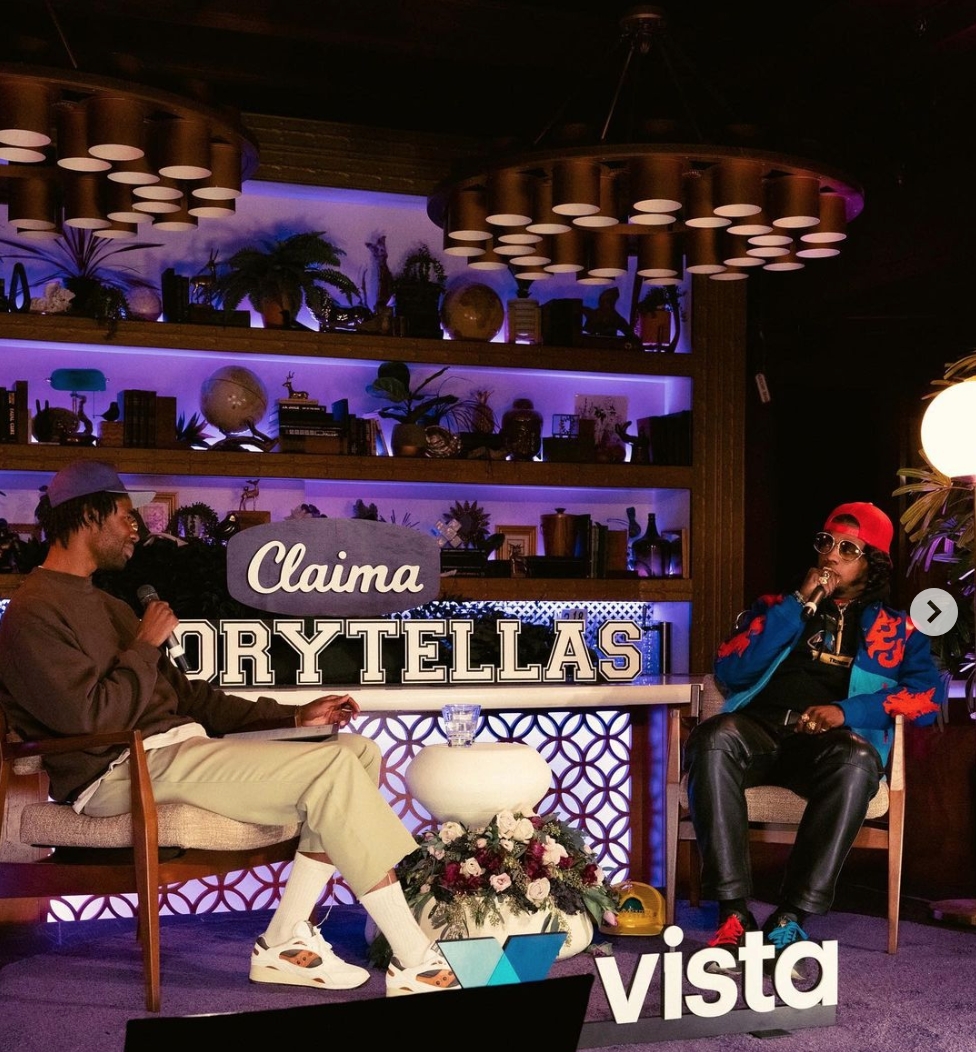
When I think of an aspiring creative entrepreneur, I’m imagining someone who is very focused on the creating aspect, but maybe the product, the networking, and all the business parts are foreign to them. What advice would you give to them?
The number one mistake I see creatives make is that they turn themselves into something they’re not. It doesn’t mean that you can’t, but it will take away from what you’re genuinely good at, which is creating. What I would advise is you need to find your CFO — the person that has a passion for running the actual business aspects of it.
Because if you’re a person that has a vision for the company and you’re passionate about creating your work, you’re not gonna get as much energy from figuring out HR plans, budgets, and all of those things.
Now, as an entrepreneur, you’re gonna need to balance both of those for quite some time. But as you grow and get it to a certain point, you want to be able to have someone that comes in, so you can have the autonomy space to focus on where the business is going, being the face, working on the creative, etc. So, my advice would be figure out the areas that you really care about as far as the whole holistic approach of what it means to be a creative entrepreneur. That also means knowing your strengths and weaknesses, right? If I had some help — think “what exactly would this help?” You gotta make sure you bring in the right people you can trust.
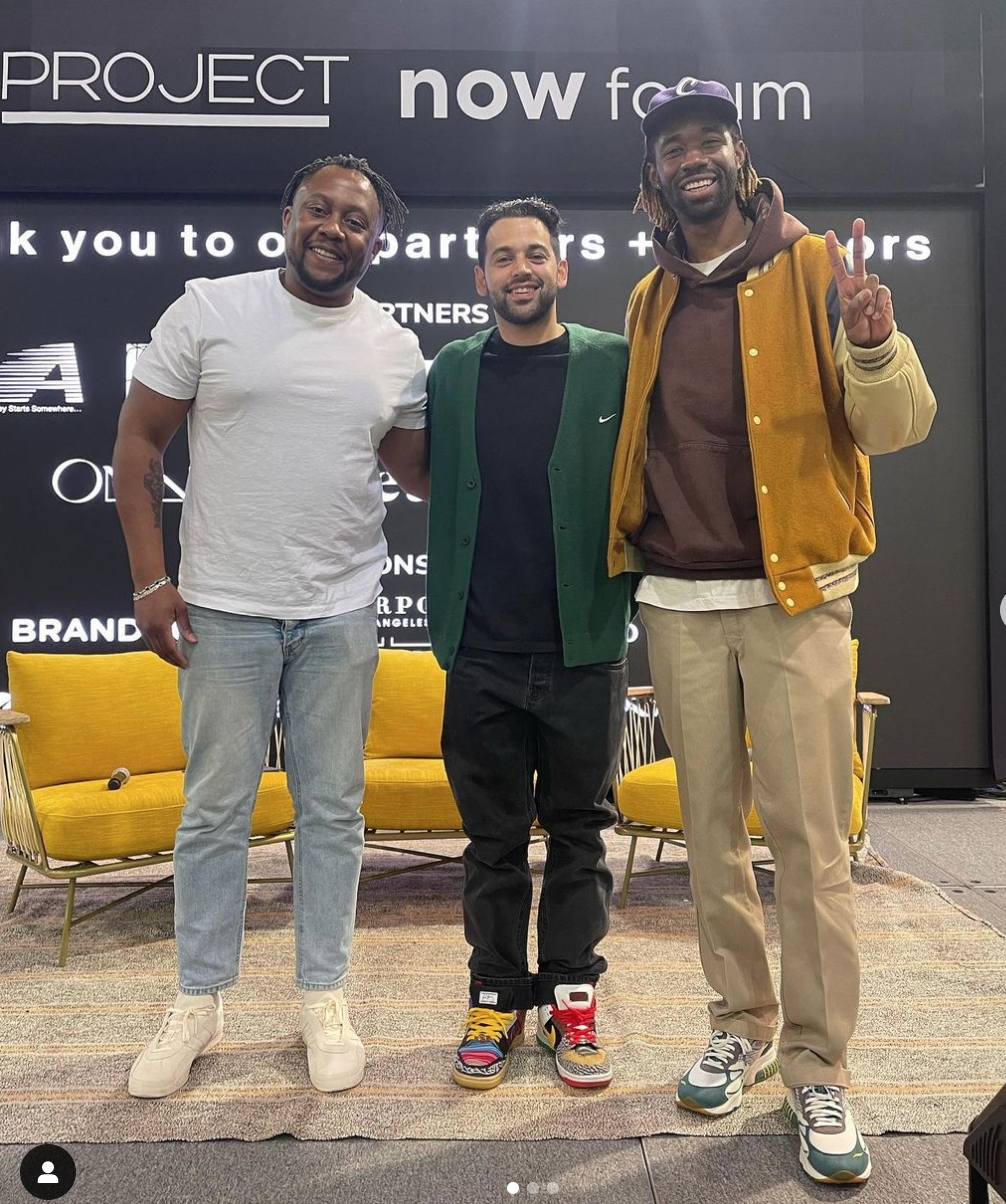
What’s been your experience with rejection and how do you advise aspiring creatives to face it?
I’ll tell you a story. Early on in the podcast, we were presenting some ideas to people at really high levels. Long story short, this was a very long rejection that did not by any means look like it was going to be a rejection. They sent an email back and said, “Hey, we’re actually going to go in a different direction.” It wasn’t a call: It was a cold email. And I remember feeling like dropping on the floor because this was supposed to be my path to start this after leaving Nike.
That rejection felt so personal — like I had made the worst decision of my career. You know, I had a mortgage, and I had a lot of responsibilities, and here I am chasing this passion project, and now all the folks that were pointing at me and saying, “He’s crazy for doing this.” Now, they’re validated. That experience taught me some valuable lessons.
One was never to put all your eggs in one basket. But, about a month later, there was another brand that came along that was very passionate about the same things that I was, which were community storytelling, social justice, and fostering the next generation of creatives. It was the first time that I was really on a call and understood what it meant to be seen, and what it felt like to know you were gonna get that business. It wasn’t ambiguous. So, that’s the second thing I learned: Creatively, it’s very clear if someone intends to do business with you. They don’t waste time. They use specific language and try to get you on a calendar and discuss SOP [Scopes of Project].
The third lesson: when one door closes, there’s another one that’s probably better and the one that you should be walking through anyway. But it doesn’t take away from the feeling, like, yeah, rejection fucking sucks. But it’s a process, it’s a part of life and if you can change your mindset to say, “Hey, I could possibly be rejected or I can possibly be accepted, you’re in a way better space to deal with whatever comes your way.”
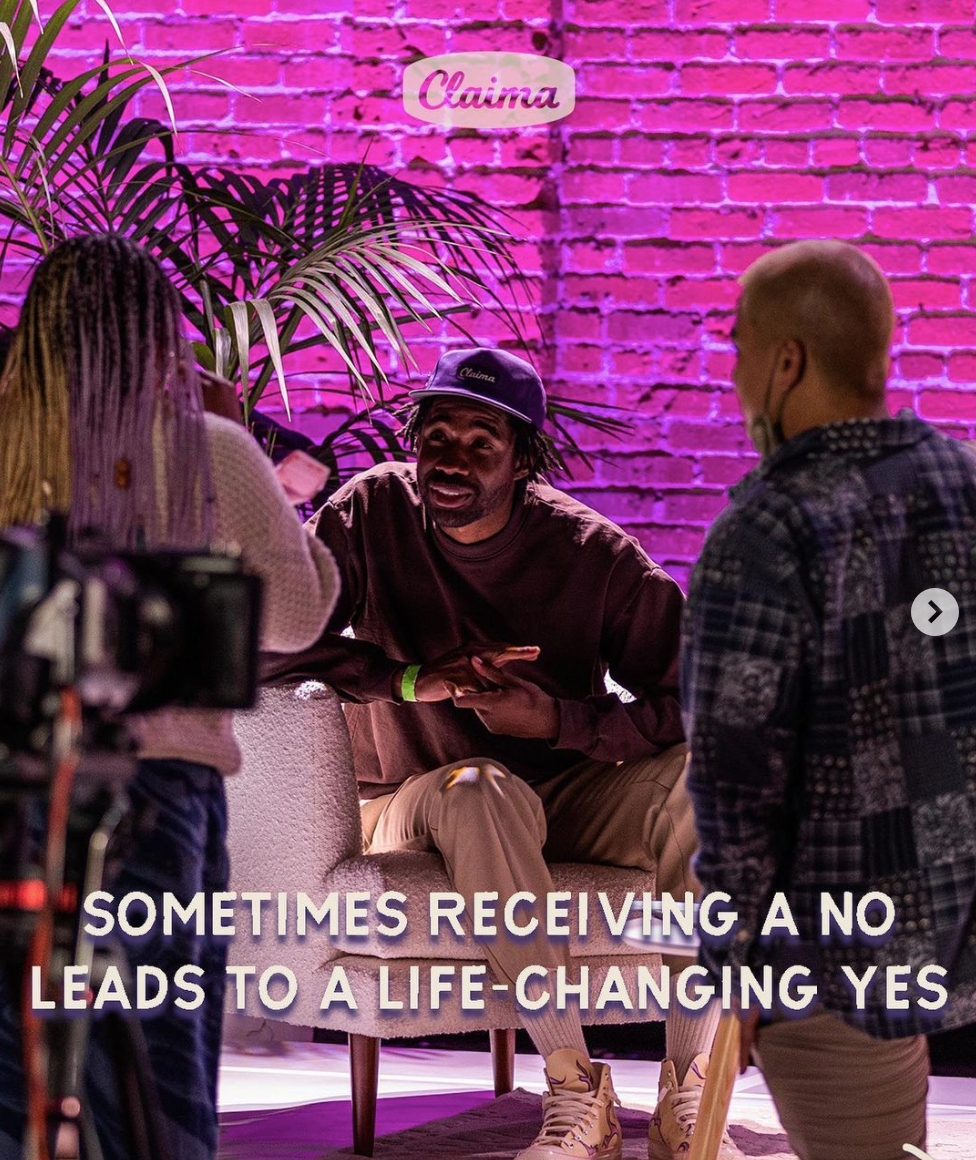
Let’s say I was at the head of Uproxx and I said, “Bimma, I want to give you a million dollars right now to make a documentary or a show.” What would be the thing you’d get going in a week?
Oh my goodness. I would work on a documentary that focuses on creative entrepreneurs that I admire. What I mean by that is they’re creatives first, but they also own their businesses. So, folks like Chris and Bethy Gibbs of Union. Folks like Melody and Sammy Ross. Some of these different creatives all over the world, but probably pick like ten of them. So, I’d create a documentary that kind of feels like the way Anthony Bourdain went about food. I would go into different pockets of these cities, and I’d uncover not only what creativity is, but understand how they discovered their purpose and the skill sets and habits they use every day to make those things real. Because so many of us see it — but we don’t know what it takes to do this over a long period of time and make it a real thing.
We’d get to see their process, their habits, their routines, and what makes them different from folks that aren’t at that level. Do they collaborate well? Do they delegate well? Is there a certain time that they wake up? How do they balance being parents and creatives and entrepreneurs? Do they have frustrations? I don’t think we’ve seen anything quite like that…
